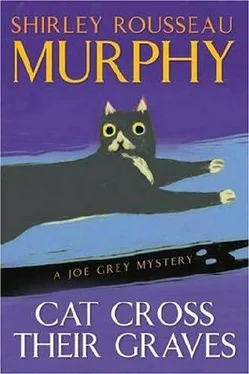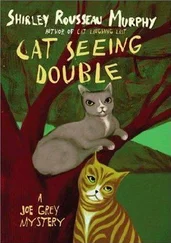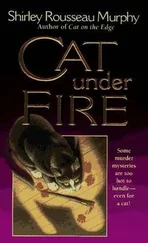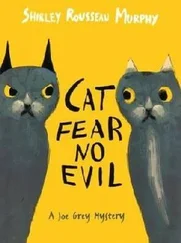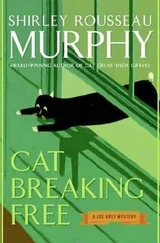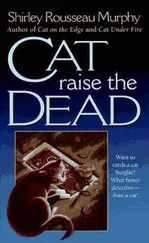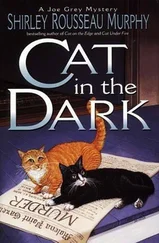Did Mama ever go to Genelle Yardley to ask questions? No matter how Mama tried to understand what made Pa change, he would never talk to her, he only shouted at her.
As far as Lori knew, Mama had never gone to any of their friends for help. Mama would have been ashamed to do that.
Sliding down from the chair, Lori headed across the reading room with a whole new plan flaring in her mind. Genelle Yardley knew about Pa. Genelle Yardley knew secrets that she, Lori, needed to find out.
Up the little half flight of seven steps, two at a time, she slipped behind the checkout desk. Shining her flashlight into the shelves beneath the counter, she hauled out the phone book and laid it on the floor. She found a pencil on the desk and a scrap of paper, and knelt on the carpet. Licking the end of the pencil, she found and wrote down Genelle Yardley's address, then turned to the front of the phone book to find the village map. She tried to imagine what Genelle Yardley looked like. She was old. Lori didn't know that people worked until they were over sixty. She wondered if Genelle Yardley had ever been to their house when she, Lori, was little, wondered if she'd ever seen her. She kept wondering if Mama had ever gone to ask that old lady what was wrong with Pa.
Maybe Genelle Yardley didn't know, either. Maybe she couldn't help her, but Lori had to try.
This would be the farthest she'd ever gone from the library since she came to live here like a hobbit in a hole. Like Mr. Baggins, she thought, smiling. Only his hobbit hole was a lot bigger, with all kinds of rooms, and was full of hams and bread and cider that she wished her hideout had, too.
She'd have to go before it got light. Even so, she likely wouldn't get back from Genelle Yardley's house until it was bright morning. She'd have to wait all day, until nine that night, before she could be safe in her cave again.
And she couldn't hang around the library for too long, and draw attention from the librarians. Some of those women might remember her, from when she was little and Mama worked here. And she didn't dare be seen during school hours.
She wrote down the streets that climbed the hills to Genelle Yardley's, wrote where to turn and when to start looking for the number. The house was so high up the hills that it had a number. Those in the village didn't. If someone told another person where they lived, it was like, "Third house on Lincoln north of Fourth." People who lived in the village went to the post office to get their mail.
Going up the hills, she'd have to watch for Pa's truck, out early going to some job. Hide if she saw him. But what worried her was the other man, the man she'd seen standing in the shadows one morning when she went out. She'd seen him later, too, when she slipped out before it was hardly light to walk on the beach. Probably she imagined he was watching her. Probably some homeless man with nowhere to go. Anyway, he was very thin and small, not much taller than she was, and Mama said she was strong for her age. Mama showed her things she could do to get away from someone, things that could hurt a person, so she wasn't very scared of him.
Folding her slip of paper with the streets and address, she flicked off her flashlight and crossed the library to the stairs. As she headed down to the basement, the courthouse clock struck ten-two hours until midnight. She thought to set her alarm for really early, maybe four A.M. No one would see her on the streets then, it would be deep dark. Windy and cold, too. Pa sure wouldn't be out at that hour.
But that man, he'd been out there early, before dawn. She looked out at the moonlight, bright now with the moon right overhead. She could go even earlier; he wouldn't be out in the middle of the night, would he? Maybe no one would. She could hurry up the hills to Genelle Yardley's house and hide in the bushes until the old lady woke up. Until Ms. Yardley turned on a light in the morning or came out to get the paper. If anyone bothered her she'd kick them in the groin, the way Mama taught her.
As Lori bricked herself back into the basement room again and set her little alarm for one in the morning, five blocks away the kit pressed the two brown envelopes up between a floor joist and a plumbing pipe. Secure just inside the vent grid where a cop could reach in, they would not be seen by the casual passerby. Now, with the envelopes safe, the kit circled the underhouse again, frantic to get out. She circled, pawing uselessly at the other two vents, but both were fixed tight to the wall. With screws, she thought. She hooked her claws in but couldn't pull them out.
Studying the concrete foundation, wondering how deep it went, she found a soft place in the dirt where she could smell the old, dry scent of squirrels, where their digging had made the ground soft.
Thanking the little rodents that normally she would eat, she began to excavate the churned earth, kicking dirt behind her like a terrier. Her panic at being trapped was worst of all when she did nothing; she needed to move, it eased her to dig even if she had to dig to China. Listening for his car, she clawed down and down, wondering if he was coming back or if he was gone for good. She thought the time was past midnight. She dug straight down for nearly a foot, fighting the dirt away from the concrete wall, trying to find its bottom, scraping the skin from her paws until they bled again. And still the concrete went deeper.
After a long, long time of digging she found a straight edge to the concrete, where it turned under. Her paws hurt bad. She was very thirsty. And hungry. But the discovery of the bottom of that concrete filled her with terrible joy. Pausing, she thought she would just rest for a little while before she dug on through and up the other side. Soon enough she'd be free, be out of there and free.

Above the courthouse tower the clouds moved away; the full force of moonlight washed down across the parapet, caressing the two cats, etching Dulcie's black and brown stripes like a black ink drawing. She lay licking her paw, watching Joe, her ears back in a thoughtful frown but trying to remain silent, letting Joe come to his own conclusion.
"Maybe you're right about Harper," he said at last. "If we tell the cops about the child, they'll have little choice, they're bound by law to call child welfare-if the kid's really all alone, if there's no family." He studied Dulcie, his yellow eyes narrowed and appraising. "But Wilma's retired, she's a free agent, she's not beholden to the law. She can do as she pleases."
"But what would she do? You know how she feels about help from the proper officials, she's all for it."
"Maybe. But she isn't stupid. She knows how twisted some of those agencies can be. You get one bad apple…"
Dulcie shrugged. "I suppose. So frustrating that I can't ask Lori questions. That I can only hope she tells me more. I don't know why she doesn't want anything to do with child welfare. And the man she talks about, she just says he. I don't know if someone's stalking her, or if the man is family. I tried to find her last name in the library database for library cardholders, for children's cards with the first name Lori. Took me all night, those computers are so temperamental. Why don't they make a steadier machine, one that doesn't go off in a hundred directions?"
"A cat-friendly computer."
"Exactly. Someone ought to write to Bill Gates. Well, there's no library card for Lori, not one Molena Point child named Lori in the system." She told him how she had discovered Lori in the first place, when the scent of peanut butter and jelly drew her across the library basement to the bricked-up wall behind a little bookcase.
Читать дальше
